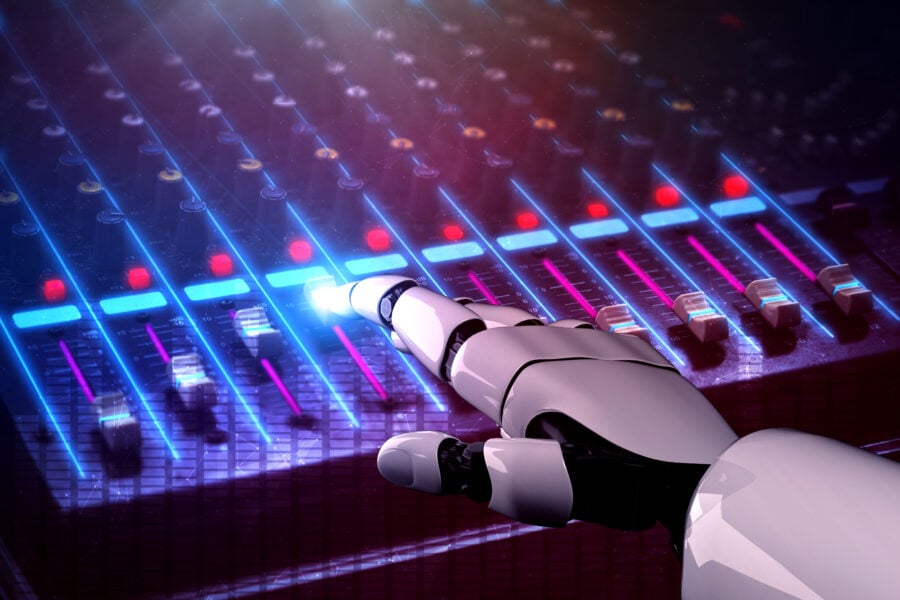Suno and Udio have been slapped with another round of copyright litigation, this time by country musician Tony Justice, who filed class-action lawsuits against both controversial AI music generators.
The complaints allege Suno and Udio used Justice’s recordings and works from “thousands of class members” without authorization to train their AI models.
Justice and his label, 5th Wheel Records, filed the lawsuit against Suno (which you can read here) in Massachusetts, and the case against Udio (read here) in New York.
The 23- and 24-page lawsuits argue that while major labels pursue their own infringement cases, independent artists “whose rights have been trampled the most” remain excluded from “the table, unrepresented, and without a meaningful remedy.”
In June last year, the major music companies sued the AI startups in the US for allegedly training their systems using the companies’ recordings without permission – an accusation they pretty much admitted to in court filings last August.
Most recently, Justice’s complaint states: “Rather than simply license these copyrighted songs like every other tech-based business does, Suno/Udio elected to simply steal the songs and generate AI-soundalike music at virtually no cost to Suno/Udio.”
“Rather than simply license these copyrighted songs like every other tech-based business does, Suno/Udio elected to simply steal the songs.”
Tony Justice’s lawsuit
Justice’s legal team includes Krystle Delgado, an attorney who also performs as a musician.
As with the lawsuits filed by the three majors, the new cases challenge the AI companies’ argument that training models on copyrighted material constitutes fair use under copyright law.
Justice’s lawsuits contest this position, citing recent guidance from the US Copyright Office. It cited the office’s May 2025 report: Copyright and Artificial Intelligence, Part 3: Generative AI Training, which according to the lawsuit, “emphasized that the fair use doctrine does not excuse unauthorized training on expressive works (e.g., music) particularly when those works are used to generate substitutional outputs that may replace the originals in the relevant marketplace.”
“The process in which Suno’s/Udio’s AI model trains, through the reproduction and copying of existing copyrighted songs, constitutes prima facie copyright infringement.”
Tony Justice’s lawsuit
“Suno/Udio training its AI model on the copyrighted songs of independent artists, Plaintiffs and Class Members, without authorization, to then create competing music in the exact same marketplace, is unlikely fair use, and therefore, is prima facie copyright infringement.”
The Copyright Office report referenced in the lawsuits warns that AI training involves multiple reproduction acts that could constitute infringement.
“Meaning, the process in which Suno’s/Udio’s AI model trains, through the reproduction and copying of existing copyrighted songs, constitutes prima facie copyright infringement,” according to the lawsuit.
Justice’s website describes him as “one of country music’s most talked about independent artists” and a “full-time truck driver.” His song, Last of the Cowboys, has accumulated over 8 million streams on Spotify, where he has over 54,700 monthly listeners. On YouTube, Justice has attracted over 28,000 subscribers.
His lawsuits against Suno and Udio seek to establish a class action covering all independent artists, songwriters, and producers whose works appeared on streaming services since January 1, 2021.
Justice seeks permanent injunctions preventing further unauthorized use of copyrighted works, plus damages up to $150,000 per infringed work.
Suno is also facing a copyright infringement lawsuit in Germany, filed in January 2025 by GEMA, the German collection society and licensing body.
The latest lawsuits against the two AI companies arrive about two weeks after Bloomberg reported, citing people familiar with the discussions, that the three majors are seeking license fees from the platforms plus “a small amount” of equity in both firms.
Music Business Worldwide









